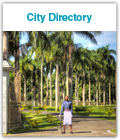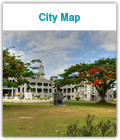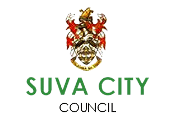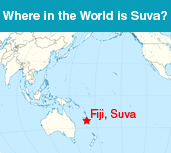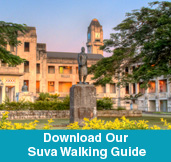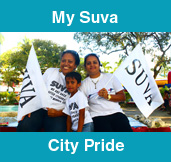Temples
Indian Temples (‘Mandir’)
Out of a population of 800,000 people, 38% are Indians and 22% of that is Hindus. Suva is home to the largest population of Indians living in one geographical area. Suva itself has more than 20 temples located within close range of the city. They are either small residentially owned Mandir’s or those built collectively by the Hindu organization from Suva. Hindus take pride in their holy worshipping consignment. Each pillar in the temple is kept clean and special prayers are conveyed in the morning to ward of evil spirits or any other impurities which may have settled there during the night. This is a daily practice by all followers of the Hindu faith.
Entering this place of massive regard is an honor and indeed a holy experience as everything is serene and placed in blessed atmosphere. The interior of the temple should always be entered in a clean state. It is a must to remove shoes before entering. Ladies are accustomed to cover their heads and everyone should be in proper attire. It is not a must to be in Indian costume, but it is advisable to seek further clarifications before venturing indoors.
A great example of a truly beautiful temple sitting right on the outskirts of the city entrance is on Brewster St. It is a new establishment with its own hall and parking facilities.
Sikh Temples (‘Gurudwara’)
A small percentage of the Indian population is Punjabi. Located on the outskirts of the city, in the residential areas of Samabula, we have the only Sikh Temple in Suva. Resting on a hill, the temple has a beautiful landscape surrounding it with a sloping lawn, creating an inviting scene. The temple itself is a one storey, whitewashed structure with a small garden at the entrance, where one must wash his feet before entering.
The custom one must follow when visiting the temple is that the head must be covered and that men sit separately from the women.

